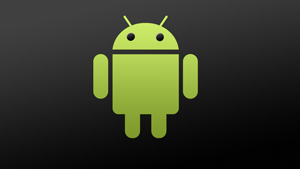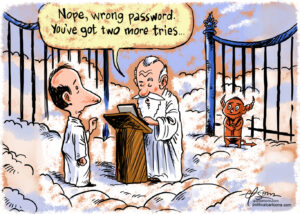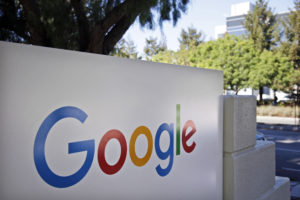Google’s Strange Discomfort With Sexuality
The list of words banned from the latest Android operating system is as baffling as it is odd. Apparently, the Internet giant is not OK with words like "preggers" and "uterus" but it also has something against "LSAT." What gives, Google?
The list of words banned from the latest Android operating system is as baffling as it is odd. Apparently, the Internet giant is not OK with words like “preggers” and “uterus” but it also has something against “LSAT.” No genitalia have made it into the 165,000-word dictionary within the new system, but neither have harmless words such as “panties” or “pizzle,” or rather useful words like “condoms” and “Tampax.” These are just some of the 1,400 English words absent from Google’s Kitkat phone.
Wired magazine discusses the approach the company has taken to language:
Type or swipe the word on the latest version of Android’s Google Keyboard — or for that matter “intercourse,” “coitus,” “screwing” or even “lovemaking” — and the web giant’s predictive algorithm will offer no help.
Taken as a whole, Google’s list suggests not only a surprising discomfort with sexuality, but also reproductive health and undergarments. Words like “panty,” “braless,” “Tampax,” “lactation,” and “preggers” are censored along with sexual health vocabulary like “uterus” and “STI.”
“I try to Swype-type the word ‘condom’ and I get ‘condition’ or ‘confusion,’” said Jillian York, a spokesperson for the Electronic Frontier Foundation. “There is no context in which that makes any sense. Grow up, Android.”
Indeed, many of the rules seem to go well beyond simple inconsistency into the realm of the absurd. For example, there’s a zero tolerance policy on “morphine,” “demerol” and barbituric acid precursor “malonylurea,” while “marijuana,” “methamphetamine” and even “bong” are allowed. Islam-related words “Sunni” and “Iftar” are censored, but many others related to the Muslim faith and other religions are kosher. Tech outfits “AMD” and “Garmin” are both verboten and yet Google competitors “Apple” and “Microsoft” are permitted.
“Klansmen” and “supremacist” are blocked, but “Nazi” is fair game.
Google declined to comment on how it compiles the list of offensive words, and how often it’s updated. But it’s clear that built-in dictionaries for other languages censor far fewer words.
As others have pointed out, words included in any dictionary, digital and otherwise, can quickly become a political issue. Anti-bullying advocacy group Grin Campaign successfully lobbied the Oxford English Dictionary and Microsoft Office to include the word “transphobia” in future editions, and during the runup to the 2008 presidential election, New York Times blogger David Pogue pointed out that many versions of Microsoft Office still did not recognize the name “Obama” (though an updated word list was available at the time as a patch).
For those of you who don’t feel like being limited in your verbal exchanges with others, you can disable the filter in the phone’s keyboard settings. Just don’t be too surprised if your next Google update suddenly makes it difficult to discuss “lovemaking” or call someone a “geek.”
—Posted by Natasha Hakimi
Your support matters…Independent journalism is under threat and overshadowed by heavily funded mainstream media.
You can help level the playing field. Become a member.
Your tax-deductible contribution keeps us digging beneath the headlines to give you thought-provoking, investigative reporting and analysis that unearths what's really happening- without compromise.
Give today to support our courageous, independent journalists.









You need to be a supporter to comment.
There are currently no responses to this article.
Be the first to respond.